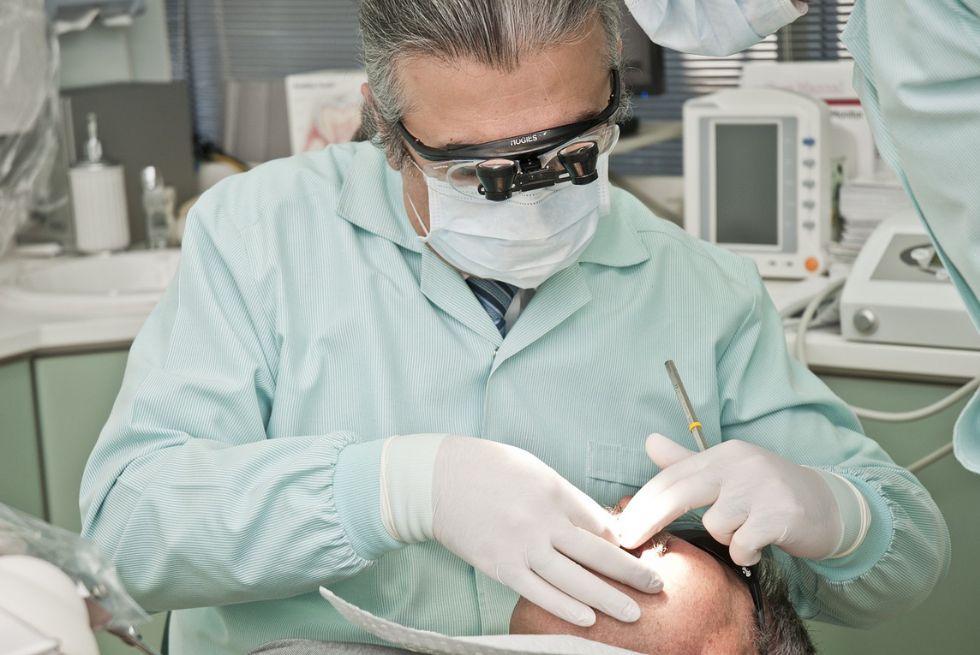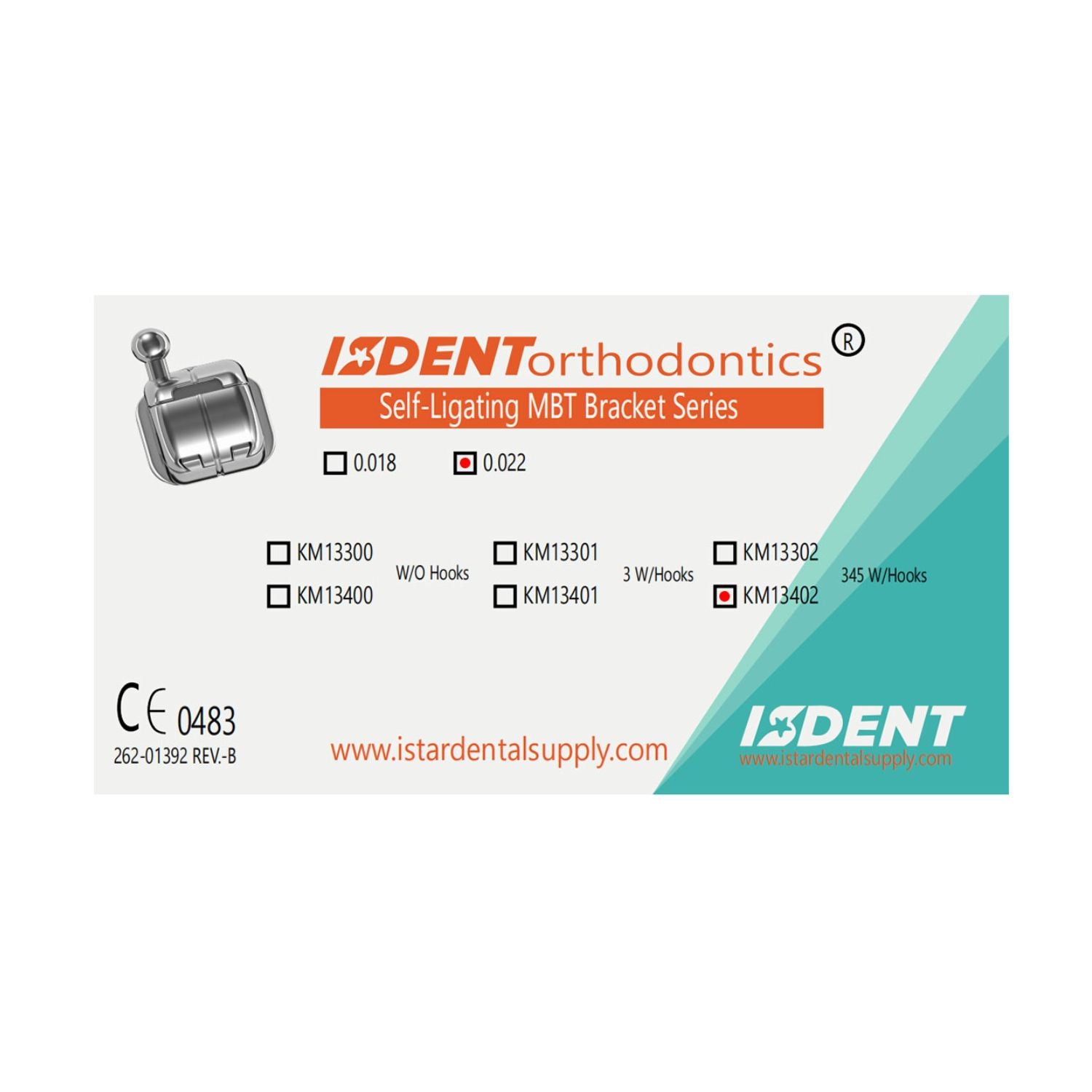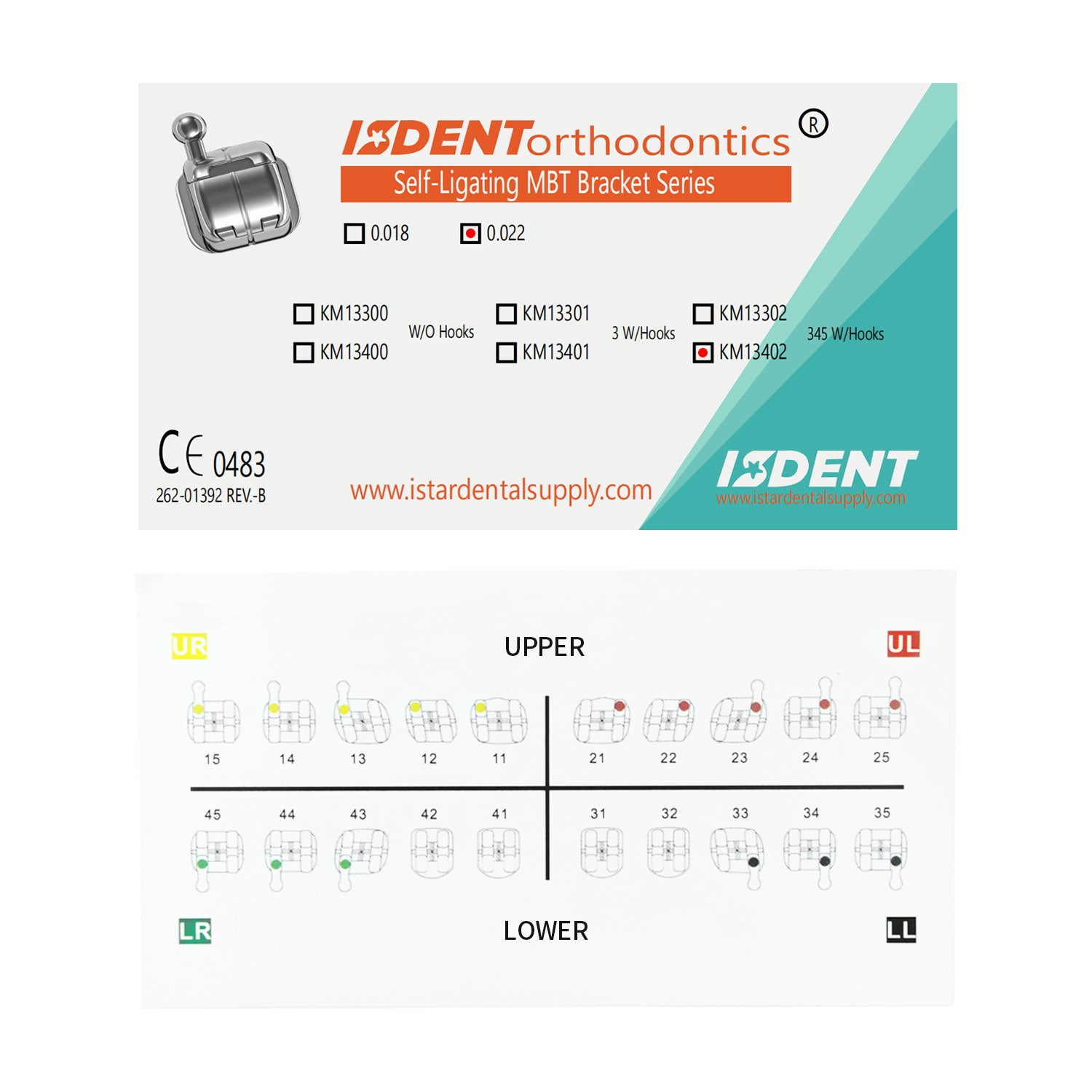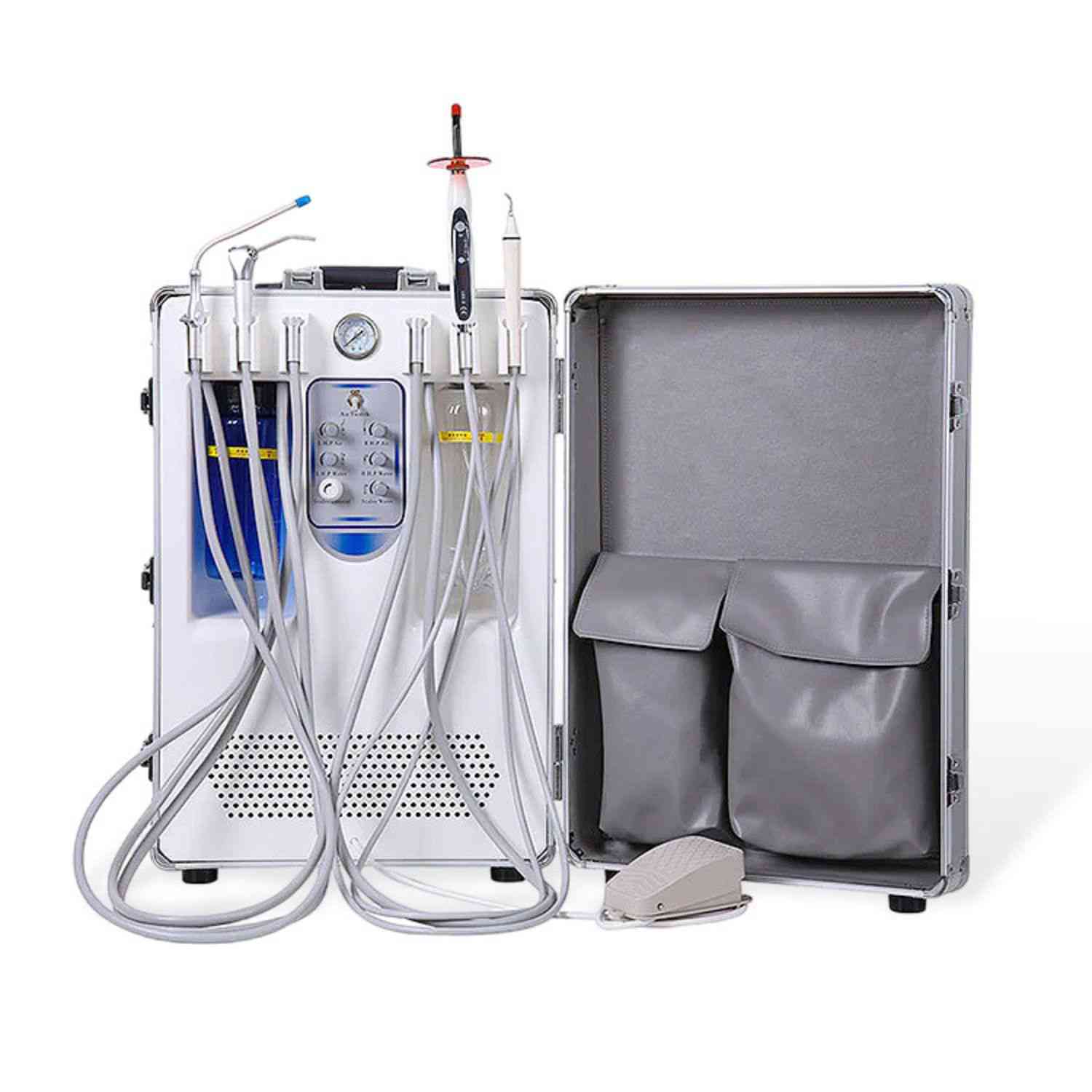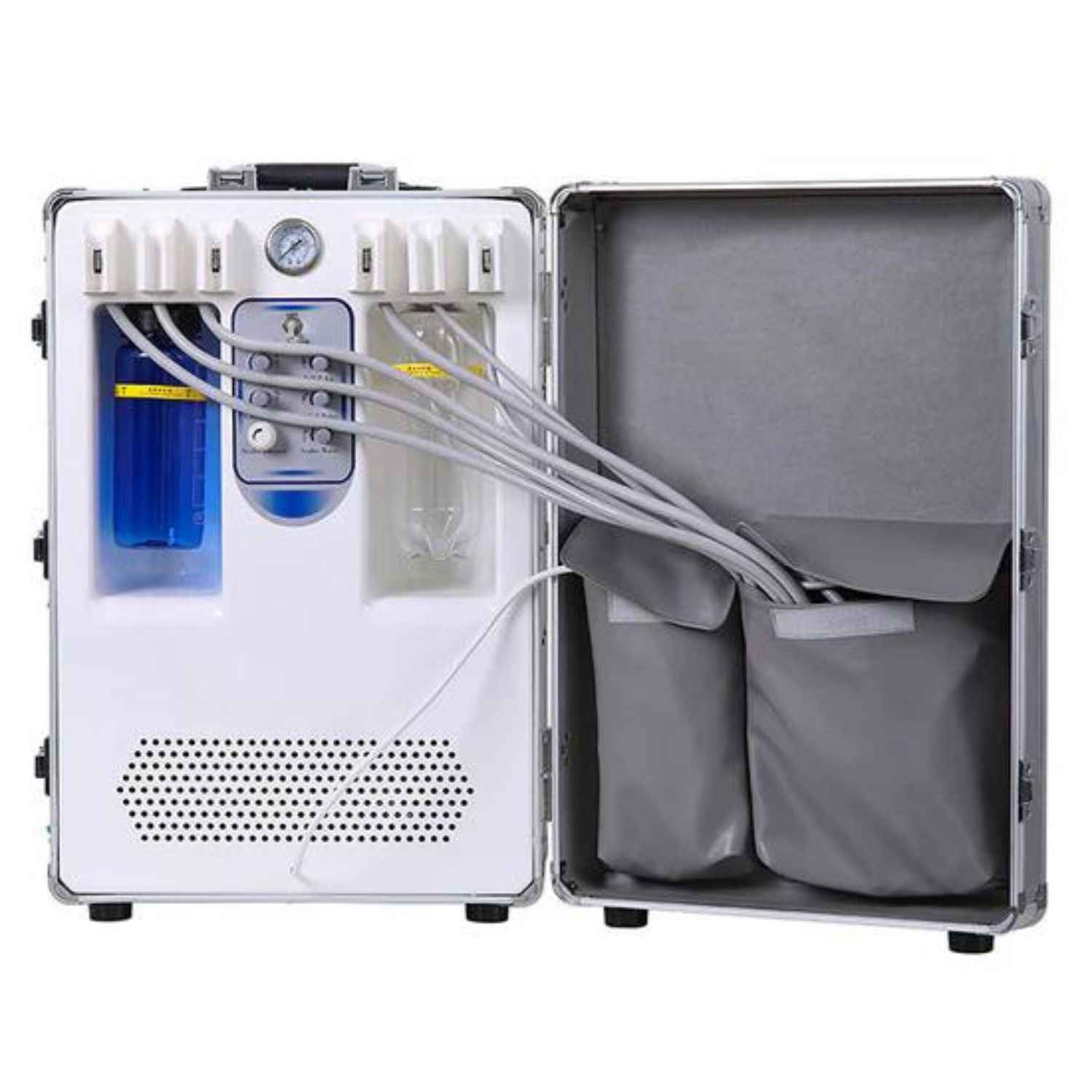Dental treatment is detailed and complex, and a clear view is key to success. How can you ensure good visibility? Dental loupes are very important.
They help with surgery and prevent dentists from developing back pain or other work-related problems. This article will give you a full introduction to dental loupes and show you how to choose the right ones.

What Are Dental Loupes?
Dental loupes are specialized optical devices that enhance vision during dental procedures. They provide high magnification and clarity, allowing dentists to see the tiny details of teeth. This makes it easier to perform complex treatments, such as root canal therapy and implant surgeries.
Who Need To Use Dental Loupes?
Dental loupes are essential for several professionals in the field of dentistry. Let’s break down who can benefit from them:
Dentists
Dentists rely heavily on clear, precise vision to perform complex procedures. Loupes help magnify the treatment area, improving the accuracy of their work while reducing eye strain. Whether it’s a routine cleaning or a more involved surgery, dental loupes are an invaluable tool for improving treatment outcomes.
Dental Assistants
Dental assistants can also benefit from using loupes. Their tasks often require attention to detail, such as assisting in procedures or ensuring the proper placement of materials. Loupes give them a closer look, allowing them to support the dentist more effectively and work with greater confidence.
Dental Students
For students, developing proper techniques is key. Using loupes from the start helps them establish good posture and precise hand-eye coordination early in their careers. They also become familiar with the tools they will need once they enter professional practice, giving them a head start on building a successful career.

Are Dental Loupes Necessary?
Some may wonder if dental loupes are truly necessary. Here’s why they’re more than just a fancy accessory:
Improve Treatment Quality and Efficiency
When you can see more clearly, you work more accurately. Loupes help dentists perform delicate procedures with precision, leading to better results and fewer mistakes. They also enable professionals to work faster, without sacrificing quality, as they don’t have to strain to see the fine details.
Reduce Muscle Strain
Bending over patients for long periods can lead to back, neck, and shoulder pain. Loupes help dentists maintain better posture by bringing the work into clearer focus without the need to hunch forward. This means less discomfort after a long day of seeing patients.
Build Patient Trust
Patients want to know they’re in capable hands. When they see you using specialized tools like dental loupes, it signals that you are committed to providing top-tier care. This level of professionalism fosters trust, helping patients feel more comfortable during their appointments.
Types of Dental Loupes
Not all dental loupes are the same. There are various types designed to fit different needs. Here’s what to consider:
Magnification Strength
Loupes come in a range of magnifications, typically from 2.5x to 5.0x.
The right magnification level depends on the type of work you do. Higher magnification is great for intricate procedures, but lower magnification may offer a wider field of view, which is useful for general work.
Working Mechanism
There are two main types of loupes: Galilean and Kepler.
Galilean loupes are lighter and more affordable, but Kepler loupes provide higher magnification and a sharper image, making them ideal for specialists.
Frame DesignDepending on the frame design, they can be categorized as Headband Type, TTL(Through The Lens) Type and Flip-Up Type.
Light Source Options
Some loupes come with built-in lighting, while others are compatible with separate light attachments. A good light source is essential for clear visibility, especially when working in deep or shaded areas of the mouth.
How To Choose a Dental Loupe?
Choosing the right dental loupe can feel overwhelming, but focusing on these factors will help you find the best fit:
Magnification Level
Select the magnification that suits your work. For general dentistry, 2.5x to 3.0x is a good range. For specialists like endodontists or periodontists, a higher magnification might be more appropriate.
Working Distance
This refers to the distance between your eyes and the treatment area. Choose a loupe that matches your natural working distance to ensure comfort and clear focus. Your posture should remain upright without needing to bend forward.
Resolution
The clarity of the image through the lenses is vital. High-resolution loupes provide sharper images, allowing for more precise work.
Depth of Field
This is the range in which the image stays in focus. A deeper field of view means you can move slightly without losing focus, making it easier to maintain a comfortable working position.
Field of View
A wider field of view gives you a larger area to see at once. This can be especially useful in general dentistry, where you need to observe the overall structure of the teeth while focusing on details.
Frames Design
Comfort is key when selecting frames. Look for lightweight, durable materials that sit comfortably on your face for extended periods.
Lighting Options
Good lighting enhances visibility. Consider a loupe with an integrated or attachable light source that provides consistent illumination without creating shadows.

The Best Dental Loupes for You
Choosing the best dental loupes isn’t just about the technical specs; it’s also about personal preference. Here’s how to find what’s right for you:
Conform to Your Personal Use Habits
Depending on what you're used to, choose between headband type or eyeglasses for more comfort. Different types and materials affect the weight, consider the weight bearing on your nose or head.
Suitable for Your Working Distance
Make sure the working distance is comfortable for your height and posture. You shouldn’t have to strain or adjust your position constantly.
Effective Magnification
Choose magnification that balances clarity with comfort. If the magnification is too high, it can narrow your field of view, making it difficult to work efficiently.

How To Measure Working Distance?
Working distance is closely related to a person's height. To determine your working distance, follow these steps:
Stand up straight with your back straight and your fists facing each other. Raise your arms as if you’ re in a working position, then measure the distance from your thumb to one eye. This distance is your ideal working distance.
What Is The Average Cost Of Dental Loupes?
The price of loupes varies greatly, depending on the magnification and the material used. Generally, you can expect to pay:
Basic loupes: $200 to $500
Mid-range loupes: $500 to $1,200
High-end loupes: $1,200 to $3,000 or more
Maintenance and Care
Like any other professional tool, your loupes need proper care to perform their best. Here’s how to keep them in top condition:
Wearing Time
Avoid wearing loupes for longer than necessary. Extended use without breaks can cause eye strain, so make sure to rest your eyes periodically.
How to Store
Store your loupes in a protective case when not in use. This keeps them safe from dust, scratches, and accidental damage.
How to Clean
Clean the lenses regularly with a soft, microfiber cloth and lens cleaner. Avoid using rough materials or harsh chemicals that could damage the lenses or coating.
How Often to Replace
Regularly inspect your loupes for wear and tear. Over time, the lenses may lose clarity, and frames can become less stable. Replace them as needed to ensure they continue providing the best performance.

Dental Loupes Brands
Here are some of the brands of dental loupes that are known around the world:
Zeiss
Renowned for high-quality optics and durability, Zeiss offers a range of loupes with various magnification options.
Designs for Vision
This brand provides customizable loupes with different frame styles and magnification levels, catering to various dental needs.
Orascoptic
Known for their ergonomic designs and advanced optics, Orascoptic loupes often include integrated lighting options.
Surgitel
Surgitel loupes offer lightweight designs and are popular among dental professionals for their comfort and effectiveness.
Q-Optics
This brand emphasizes lightweight and customizable options, allowing for personalized fit and comfort.
Conclusion: Invest in Your Comfort and Precision
Dental loupes are more than just a tool; they are an investment in your health, efficiency, and the quality of care you provide to your patients. From improving your posture to enhancing your visibility, the right pair of loupes can make a significant difference in your day-to-day work. By choosing carefully and taking good care of your loupes, you’ll ensure that they serve you well for years to come.

FAQ:
How Do I Use Dental Loupes If I’m Nearsighted?
Dental loupes can be customized for you. Whether you're nearsighted, farsighted, or have presbyopia, you can get lenses that fit your eyes and pupillary distance. Just consult with the seller before you buy.
How to Adjust Dental Loupes?
Adjustment of the Frame:Start by placing the loupes on your nose and ears. Make sure they fit comfortably and securely. If they feel too tight or loose, adjust the arms or nose pads to get the right fit.
Adjust the Magnification:Set the magnification based on your needs. Most loupes offer levels from 2.5x to 5.0x. Choose the level that helps you see details clearly for your specific procedures.
Adjusting the Pupillary Distance:Pupillary distance (PD) is the space between your eyes. Measure your PD and adjust the lenses so they are centered over your pupils. This helps with focus and comfort.
Adjusting the Working Distance:Find your ideal working distance by measuring from your eyes to where you typically work. Adjust the loupes to match this distance so you can maintain good posture without straining your neck.

